Sumatra, Indonesia — Night came fast after a long day of trekking. It didn’t take me long to fall asleep. Then suddenly the noise awakened me. Wild monkeys had gotten into our camp quarters. I screamed, “AHHHHH!” It woke my fellow travelers. “What’s wrong?” exclaimed Jojo our guide. Then I regained consciousness. It was a dream. A bad dream.
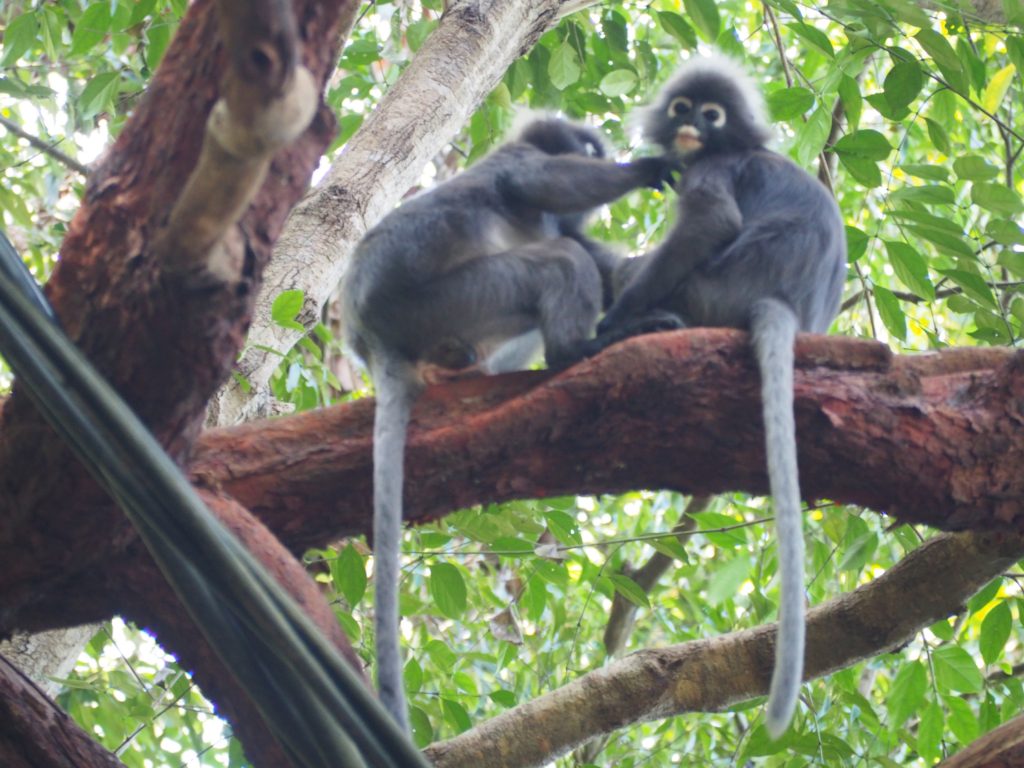
The causes of nightmares include scary movies and books, individual experiences and the side effects of medication. Perhaps in my case it was the malaria pills I had been taking. Whatever caused my nightmare, it’s not surprising to have one when you’re in the middle of the jungle. It gets dark fast here. You not only have to worry about monkeys who will steal your food and belongings, but leeches, venomous snakes and mosquitoes.
My body was hurting from the slips and falls I took that day. Every bone and muscle seem to be aching. Most unforgiving of all was the humidity. Being this close to the equator, you will sweat. My shirt felt as if someone had dumped a bucket of water on me. I was amazed as I climbed those hills that the three Germans and our two Indonesian guides in our group all smoked like chimneys. “Smoking teaches you to breathe better,” declared Julian, one of the German travelers.
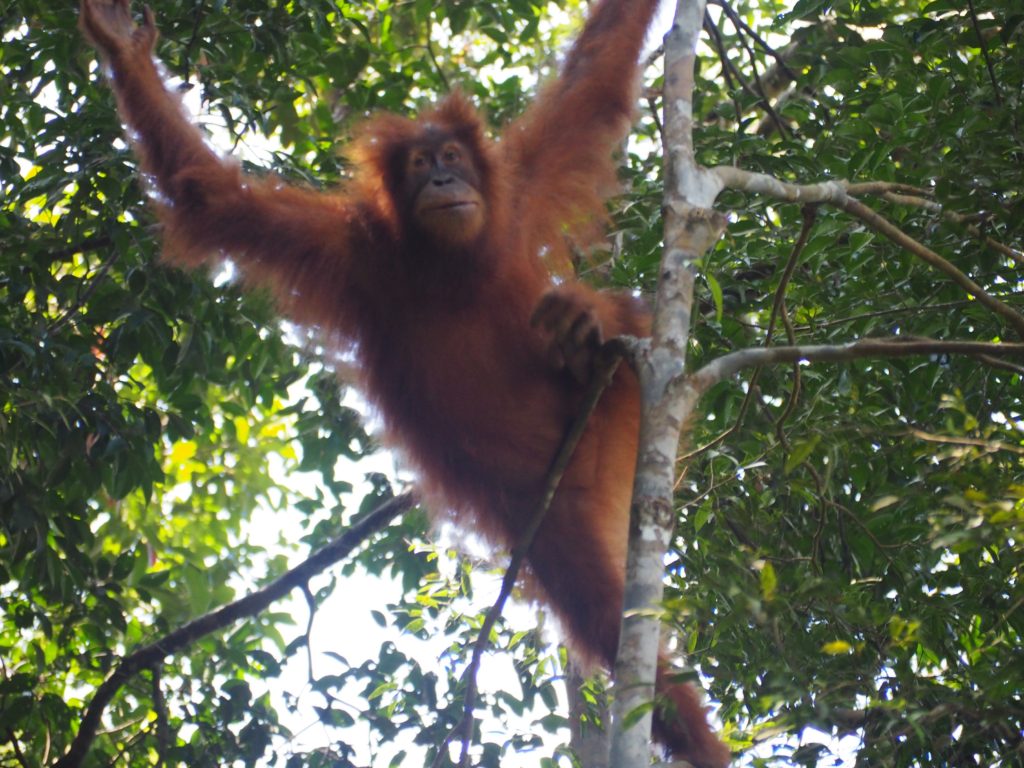
Why was I putting myself through this torture? I wanted to see orangutans in the jungle. In their wild, natural habitat. It was something I felt I had to do, but after a day of trekking that jungle, I began to ask myself, “What am I doing here? This is for someone much younger than me, ” I kept saying as the perspiration poured down my face.
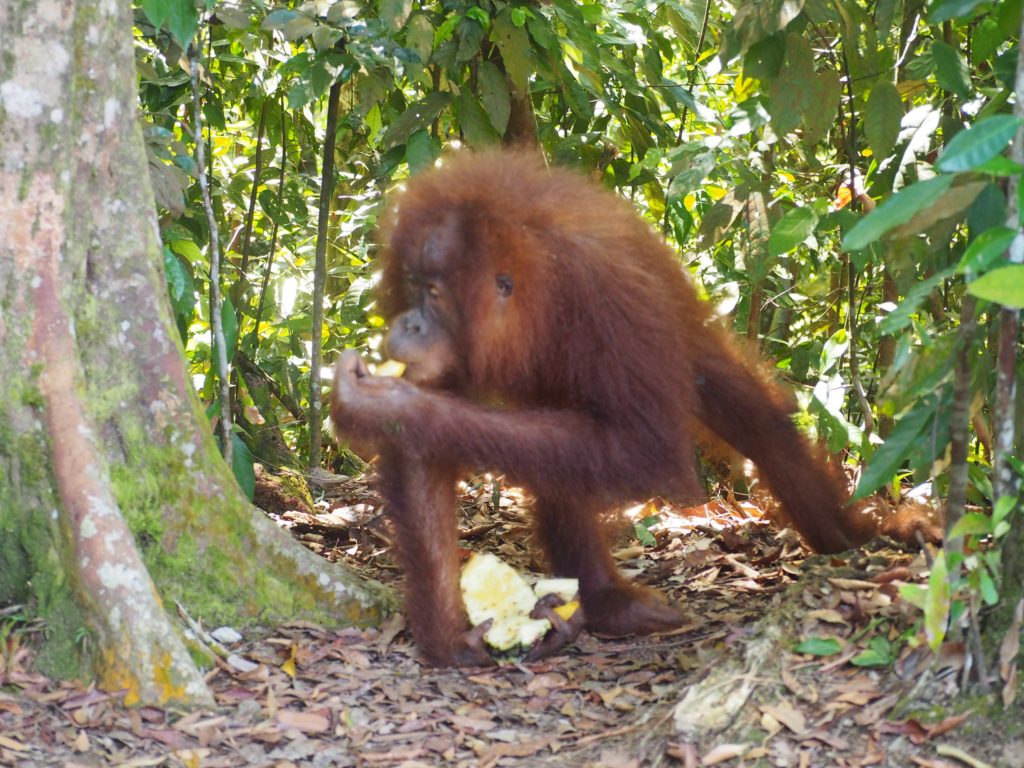
It wasn’t the first time I had been to this part of the world or had tried to see orangutans in a place other than a zoo. In 2001 I had traveled to Borneo to visit The Orangutan Rehabilitation Center, hoping to see some semi wild ones. These were orangutans who had been held captive and were now being reintroduced by the center into the wild. It was raining hard that day. I stood in the rain for a long time hoping to get a glimpse of one, but no orangutan made an appearance that day.
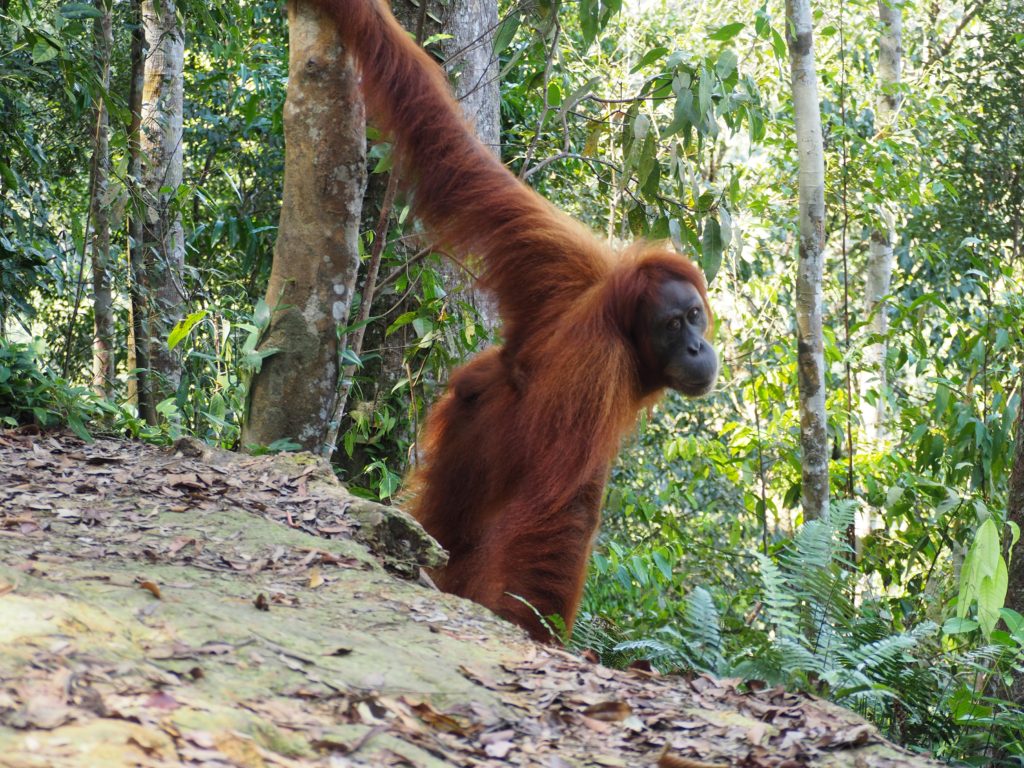
Like chimps and gorillas, orangutans are apes. Unlike monkeys which apes are often called, they have no tails. Scientists say humans share 97 percent of the same genes as orangutans. In Malay, the word orangutan means, “Man of the forest.” There are only two places where you will find them, Borneo and Sumatra. Their population which once numbered in the thousands has dwindled due to poaching and destruction of their habitat, mostly from palm oil production.

I was lucky. It wasn’t long before we spotted some of them. “You must remain quiet. Keep your distance and don’t open bags or backpacks,” Jojo warned us as we approached. Sumatran orangutans can be hard to photograph. They move swiftly and unlike their Borneo cousins, spend a lot of time in the trees. Some guides will try to coax them into good photo ops by offering them food, but it is a practice I do not condone and would prefer they keep the wild animals wild.
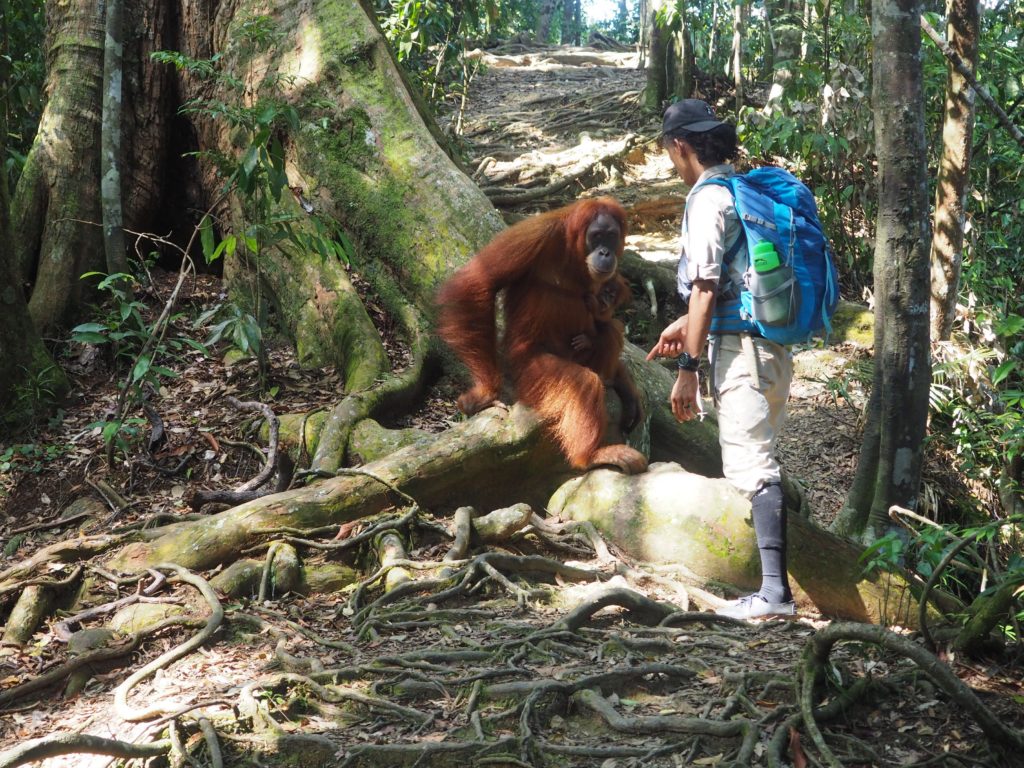
My trek was scheduled to go on for another day, but since my knee was hurting and I didn’t think I could climb another hill, I chose to go back early with the camp cook. After almost 19 years, I finally got to see some orangutans in the wild. I hope others will have the chance to experience this too, but with all that’s going on around them, their future is uncertain. As I write this humans are dealing with a terrible global pandemic Covid 19. Viruses like this and ebola are transferred from animals to humans. If we continue to allow the future destruction of these rainforests, humans will continue to see more viruses like these.
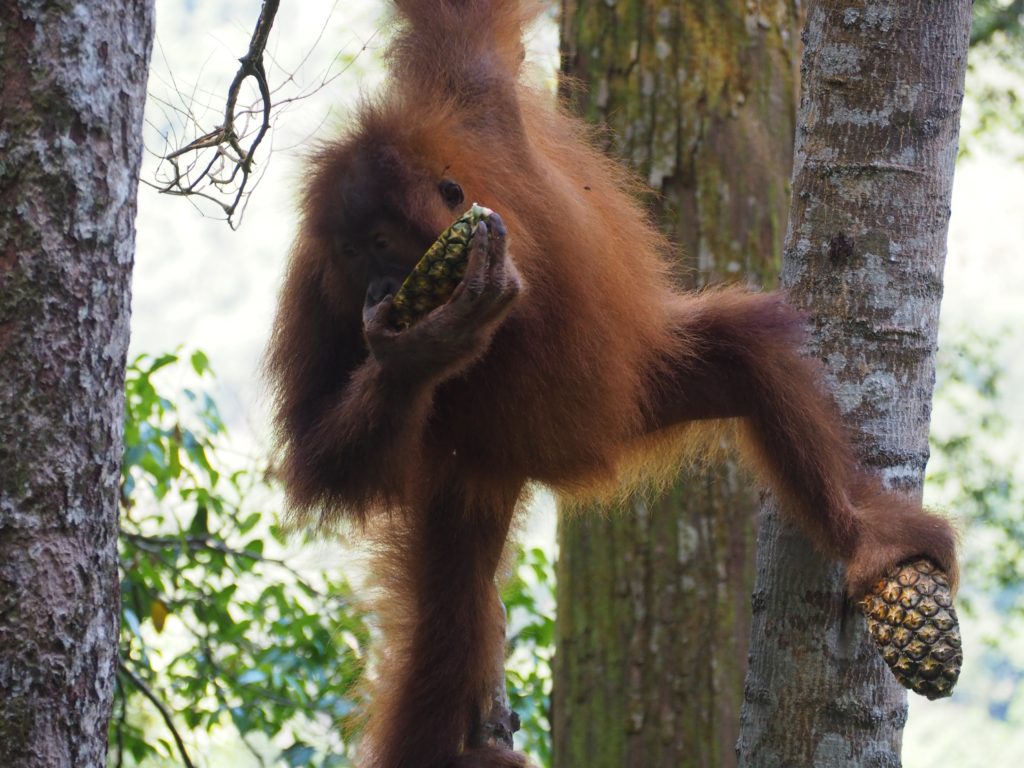
Getting there: A flight from the Malaysian cities of Kuala Lumpur or Penang to Sumatra is inexpensive and takes less than an hour. You can book a ride an accommodations to Bukit Lawang the village that borders the dense jungles of Gunung Leuser National Park. Orangutan treks can be arranged for a period of one to seven days. Try to book a small group tour with guides who do not feed the orangutans. A recommended one is Sumatran Eco Travel.
https://www.sumatra-ecotravel.com/
Travel tips: Pack light, take plenty of water, sunblock, a flashlight and a strong mosquito repellent.
David Kono
March 28, 2020 | 11:09 am
Awesome pictures and Story, thanks.